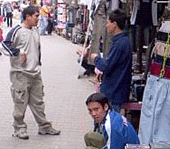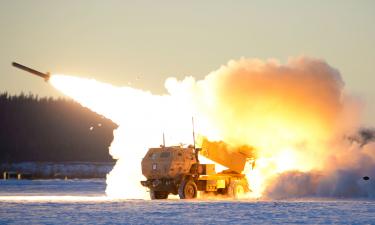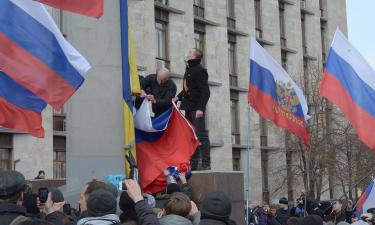National minorities to make Moscow the city of ethnic ghettos
Immigrants are basically trying to blend in the Moscow lifestyle to be inconspicuous
A group of Russian sociologists revealed in one of their recent researches that Moscow's northern, eastern and southern areas would soon turn to Asian quarters. The national image of the Russian capital has altered considerably over the recent 15 years.
 Demographers, sociologists and geographers assert that people of Slavic nationalities make the majority of the Moscow population. Specialists add, however, that the Slavic Muscovites gradually reduce in number every year. They are being ousted by immigrants from the Caucasus and Asia. The process is gathering pace, specialists say: the share of ethnic minorities is expected to grow further on. It seems that Moscow is in dire need of cheap labor force.
Demographers, sociologists and geographers assert that people of Slavic nationalities make the majority of the Moscow population. Specialists add, however, that the Slavic Muscovites gradually reduce in number every year. They are being ousted by immigrants from the Caucasus and Asia. The process is gathering pace, specialists say: the share of ethnic minorities is expected to grow further on. It seems that Moscow is in dire need of cheap labor force.
The center of Moscow and the south-west of the city vary in their nationalities most, as specialists traditionally believe. The central territory does not raise any concerns, though: Moscow's center is traditionally populated by educated and law-abiding citizens. So-called “guests of Moscow” of extremely low cultural and educational levels reside in the city's northern, eastern and southern areas, which causes much trouble to native Muscovites. As a rule, when people of Asian and Caucasian nationalities settle down in this or that area of Moscow, they invite their numerous relatives to come and live with them as well. Billboards and shop signs in Moscow's south, for example, may soon be all written in Asian languages in the near future, the Komsomolskaya Pravda newspaper wrote.
Olga Vendina, a senior staff scientist of the Institute of Geography, does not think that certain areas of Moscow may soon turn into ethnic quarters, which people of the Russian nationality will not even dare to enter. “Ethnic minorities are rather disunited socially, financially and politically. Immigrants are basically trying to blend in the Moscow lifestyle to be inconspicuous. They definitely do not want to become an inseparable part of a certain ethnic group. Results of one of our polls show that they mostly think of themselves as Russians and Muscovites. They do not put their nationality on the first place. Immigrants are forced to live in Moscow's remote southern or northern territories because of poverty – the rent is relatively cheaper there. Russian workers of limited means try to move closer to Moscow's outskirts too. Those territories may become socially unstable areas indeed,” the specialist said.
The above-mentioned territories were doomed to suffer this fate back in the Soviet years, when industrial enterprises were built there. Research institutes and apartment buildings for people of intellectual professions were erected in the north-west and in the south-west of Moscow, the newspaper wrote.
Wealthy Muscovites try to acquire new apartments in more prestigious residential areas of the city. The general living standard worsens in such Moscow areas, as successful and educated people prefer to move out to places of better quality.
”The ethnic issue can only exacerbate the poor situation with the housing reserve and the poor income of the population. Native Russians start blaming the Asians for everything, saying that they can see them at every corner. It is not ruled out that immigrants may soon trigger a social protest. Such an attitude makes immigrants retire to live in most dilapidated quarters of the city. As the American and European experience shows, the risk for ethnic ghettos to appear in those territories of Moscow will increase a lot, when the concentration of immigrants there exceeds the level of 17 percent,” Olga Vendina said.
A special program to maintain the housing stock in Moscow's working quarters will be needed in order to slow down the outflow of the middle class. To crown it all, Moscow needs to elaborate reasonable immigration policy to avoid the danger of ethnic ghettos. It is noteworthy that Moscow benefits greatly from indigent guestworkers, although they will obviously create serious problems for the city's authorities in the future. Guestworkers will most likely stay to live in Moscow, because nobody is waiting for them in their native lands.
In the meantime, Moscow still has an image of a Slavic city. A recent population census showed that 85 percent of Muscovites are Russian, 2.45 percent are Ukrainians and 0.56 percent are citizens of Belarus. The Slavs thus make 87.83 percent of population in Moscow. People of Asian and Caucasians nationalities have increased five-fold since 1989.
Subscribe to Pravda.Ru Telegram channel, Facebook, RSS!



